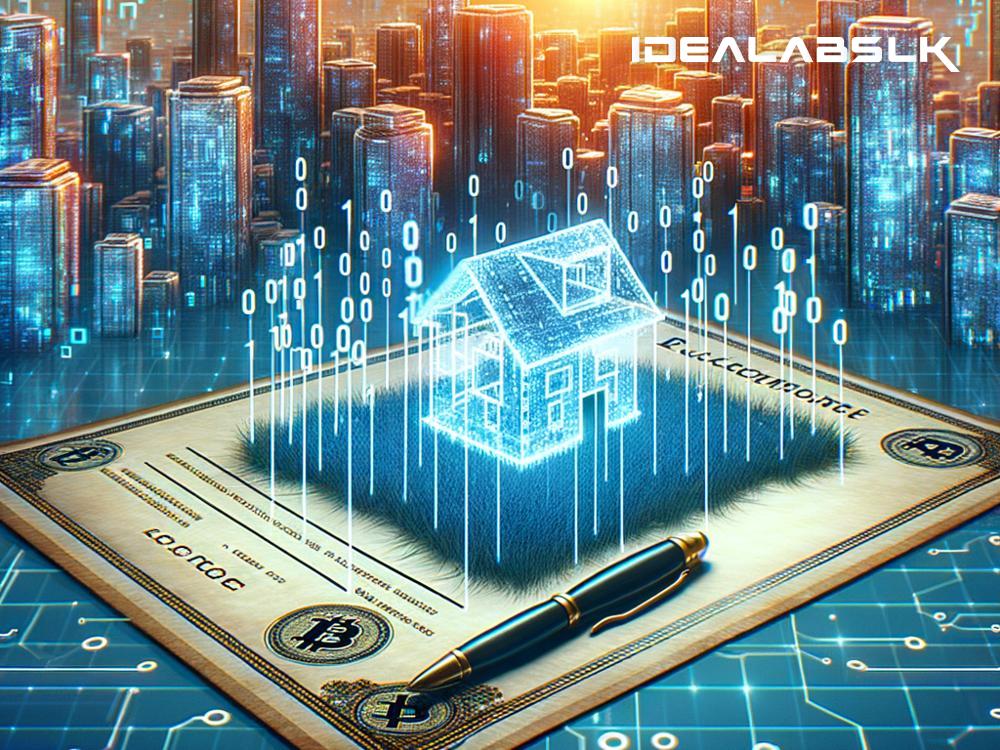How Blockchain is Transforming Real Estate Property Ownership
The world of real estate is undergoing a significant transformation, thanks in large part to blockchain technology. Traditionally, buying or selling a property has been a complex, paperwork-heavy process involving multiple parties, including real estate agents, banks, and attorneys. However, blockchain is changing the game, making real estate transactions more straightforward, secure, and accessible to everyone. In this article, we'll explore how blockchain is shaping real estate property ownership and what this means for buyers, sellers, and everyone in between.
Simplifying Transactions
At its core, blockchain is a decentralized digital ledger that securely records transactions across many computers. This technology is the backbone of cryptocurrencies like Bitcoin but has far-reaching applications beyond digital money. In real estate, blockchain can simplify transactions by cutting out middlemen, reducing paperwork, and speeding up the entire process. With blockchain, every step of a property transaction, from initial listing to final sale, can be securely recorded and verified without the need for intermediaries. This not only makes transactions faster but also significantly reduces the cost, making property ownership more affordable.
Enhancing Security and Transparency
One of the biggest concerns in traditional real estate transactions is the potential for fraud and errors. Fortunately, blockchain offers a solution. Since it provides a secure and unalterable record of every transaction, the risk of fraudulent activities is drastically reduced. Each transaction on the blockchain is encrypted and linked to the previous one, making it nearly impossible to alter the historical record. This level of security and transparency builds trust among buyers, sellers, and everyone else involved in real estate transactions.
Tokenization of Real Estate Assets
Perhaps one of the most revolutionary ways blockchain is shaping real estate is through the tokenization of property assets. Tokenization involves converting rights to a property into a digital token on the blockchain. Much like how stocks represent ownership in a corporation, these tokens represent ownership or investment in property assets. This process makes real estate investments more accessible to a broader range of people, allowing them to buy tokens representing partial ownership in properties for a much lower cost than buying an entire property. Tokenization also makes it easier to sell these investments, as tokens can be traded on digital platforms with far less friction than traditional real estate transactions.
Automating Contracts with Smart Contracts
Blockchain technology introduces smart contracts into the real estate world. These are self-executing contracts where the terms are directly written into lines of code. The contract automatically enforces and executes the terms of the agreement when certain conditions are met. In real estate, this means that payments can be automatically released to sellers once conditions like property inspections or financing approvals are fulfilled. Smart contracts can streamline the transaction process, reducing the potential for errors and the reliance on third-party intermediaries.
Democratizing Real Estate Investment
The combination of tokenization and blockchain's global nature is breaking down geographic and economic barriers to real estate investment. People from anywhere in the world can now invest in property tokens without the significant capital traditionally required to buy real estate. This democratization of investment is opening up new opportunities for wealth generation, especially in markets previously inaccessible to average investors.
The Road Ahead
While blockchain is already beginning to reshape real estate, there are challenges to its widespread adoption. Regulatory hurdles, the need for standardization, and the digital divide are among the obstacles that need to be addressed. However, as more people and institutions recognize the benefits of blockchain in real estate, these issues are gradually being overcome.
The impact of blockchain on real estate property ownership is profound and far-reaching. By simplifying transactions, enhancing security, enabling the tokenization of assets, automating contracts, and democratizing investment, blockchain is making property ownership more accessible and appealing than ever before. As this technology continues to evolve, we can expect even more innovative applications that will further transform the real estate landscape.
In conclusion, blockchain is not just a disruptive technology; it's a transformative one, especially in the realm of real estate. Its ability to facilitate secure, transparent, and efficient property transactions is revolutionizing how we think about buying, selling, and investing in real estate. As we move forward, the potential of blockchain to reshape the fabric of real estate property ownership is immense, promising a future where property transactions are more accessible, equitable, and democratic.

